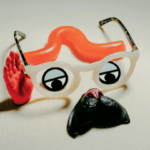6 Countries around the world start with the letter D.
Countries Begins With D – List Of Countries Starts With the Alphabet ‘D’

Democratic Republic of Congo
The Democratic Republic of Congo is a country located in Central Africa. The official name of the country is the Republic of the Congo.

The country is bordered by the Central African Republic to the north, Sudan to the northeast, Uganda to the east, Rwanda to the south, Burundi to the southwest, and the Atlantic Ocean to the west. The capital and largest city are Kinshasa, with a population of over 9 million.
The DRC has a surface area of 2,345,409 square kilometers, making it the largest country in Central Africa. The official languages of the DRC are French and Lingala, with Swahili being used as a lingua franca in the eastern part of the country. The DRC is a member of the United Nations, the African Union, and the Francophonie.
Denmark
Denmark is a country in Europe. The southernmost of the Scandinavian nations, it is southwest of Sweden and south of Norway and bordered to the south by Germany.

The Kingdom of Denmark also comprises two autonomous constituent countries in the North Atlantic Ocean: the Faroe Islands and Greenland. Denmark proper consists of a peninsula, Jutland, and an archipelago of 443 named islands, with the largest being Zealand, Funen, and the North Jutlandic Island.
The islands are characterized by flat, arable land and sandy coasts, low elevation, and a temperate climate. Denmark has a total area of 42,924 km2 (16,573 sq mi), and land area of 42,394 km2 (16,368 sq mi).
The unified kingdom of Denmark emerged in the 10th century as a proficient seafaring nation in the struggle for control of the Baltic Sea. Denmark, Sweden, and Norway were ruled together under the Kalmar Union, established in 1397 and ending with Swedish secession in 1523.
Denmark and Norway remained under the same monarch until outside forces dissolved the union in 1814. The union with Norway made it possible for Denmark to inherit the Faroe Islands, Greenland, and Iceland.
Djibouti
The word “Jab Bouti” refers to an animal that preys on livestock, and the second theory contends that the area was given the name “Gabouti” by the region’s prehistoric inhabitants, the Afar, who called it a flatland. In the end, the French gave it the name Djibouti.

Inhabitation of Djibouti dates back more than 3,500 years. In 1977, a republic was established. Most of Djibouti is a desert.
Djibouti is located in the Horn of Africa and is bordered by Eritrea in the north, Ethiopia in the west and south, and Somalia in the southeast. The remainder of the border is formed by the Red Sea and the Gulf of Aden at the east.
Djibouti has an arid climate. The country has two seasons, a wet season from April to October and a dry season from November to March. Djibouti is a member of the United Nations, the Arab League, the African Union, and the Intergovernmental Authority on Development.
Dominica
Dominica is a country that is located in the Lesser Antilles in the Caribbean Sea. The official name of Dominica is the Commonwealth of Dominica.

The island is about 290 square kilometers in area and has a population of about 72,500 people. Dominica is an independent country and is a member of the Commonwealth of Nations.
The capital city of Dominica is Roseau. The official language of Dominica is English. Dominica is a parliamentary democracy and the head of state is the president. The head of government is the prime minister. Dominica is a member of the United Nations and the Organization of American States.
Dominican Republic
The Dominican Republic is a country located in the Caribbean Sea. It occupies the eastern two-thirds of the island of Hispaniola, which it shares with the nation of Haiti.

The Dominican Republic is the second-largest Caribbean nation by area and the fourth-largest by population. Its capital, Santo Domingo, is the oldest European city in the Americas and is the site of the first cathedral, castle, monastery, and university in the New World.
The Dominican Republic’s coastline stretches for nearly 1,000 miles (1,600 kilometers) and features some of the world’s most beautiful beaches. The country is also home to a variety of plant and animal life, including the American crocodile, the Hispaniolan parrot, and the endangered Dominican iguana.
Democratic People’s Republic of Korea (DPRK)
The socialist state of the Democratic People’s Republic of Korea (DPRK) is located in the northern part of the Korean Peninsula. It has an area of 120,540 square kilometers and a population of about 25.55 million (2010). The capital of the DPRK is Pyongyang.

The DPRK is a people-centered socialist state. The Workers’ Party of Korea is the ruling party of the state, and the state is led by the party. The people are the masters of the state and society.
The DPRK is a country where the working class is in power and the masses are the masters of everything. The Constitution of the DPRK stipulates that state power belongs to the people, and the people exercise state power through their representatives.
The supreme organ of state power in the DPRK is the Supreme People’s Assembly. The Supreme People’s Assembly is composed of deputies elected by universal, equal, and direct suffrage. The term of office of the Supreme People’s Assembly is five years.

![Uncover the Hidden Gems: Fish That Start With D [Full List]](https://justwebworld.com/wp-content/uploads/2023/09/fish-that-starts-with-d-150x150.webp)




